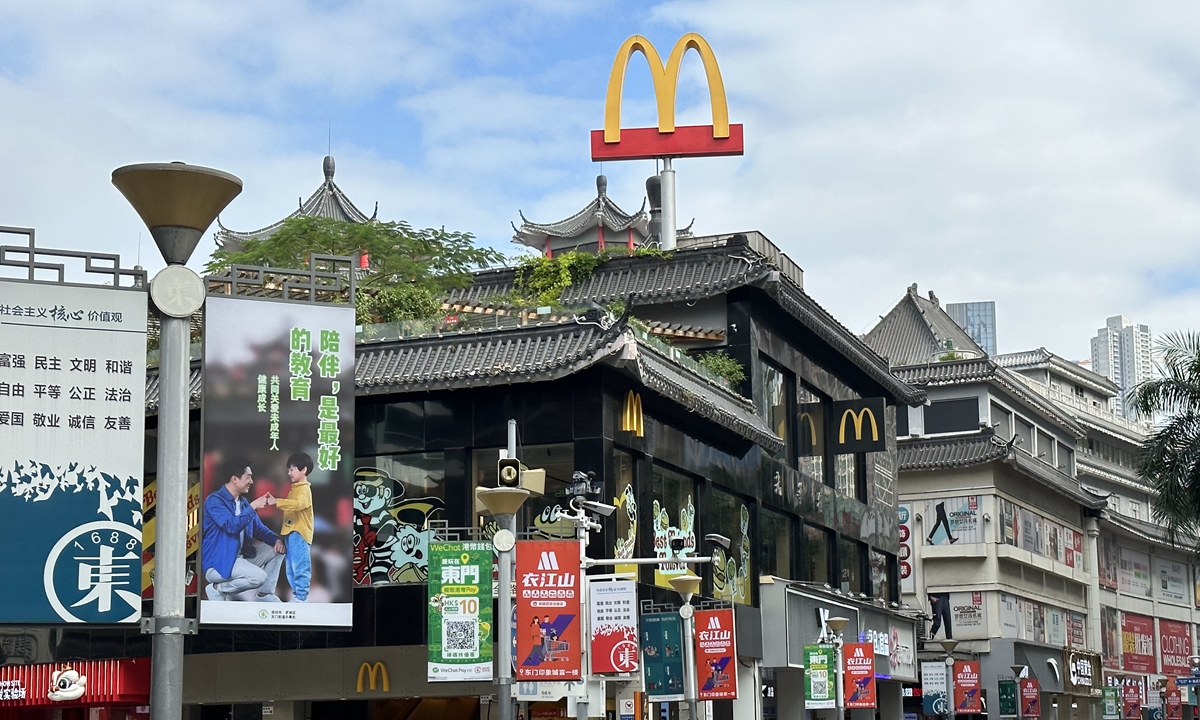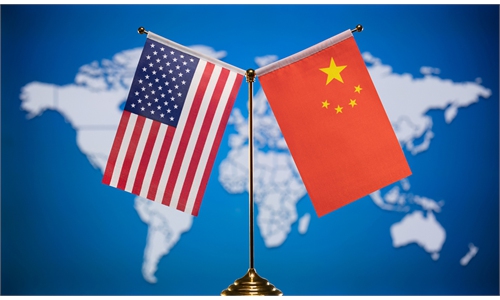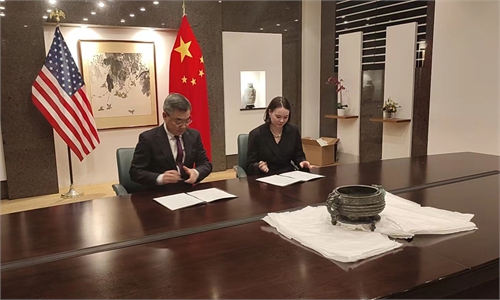US fast food giants post stellar gains in strong rebuttal to Western media reports on China

A view of McDonald's first restaurant in the Chinese mainland located in Luohu district, Shenzhen on December 14 of 2023 Photo: Tu Lei/GT
Leading US fast food companies are posting stellar gains for 2023 on par with the fast growth of 20 percent seen in the Chinese catering industry, with earnings reports serving as a strong rebuttal to smears by some Western media outlets that suggest that the Chinese economy is in trouble.
Yum China Holdings said on Tuesday (US time) that its full-year system sales in 2023 rose 21 percent year-on-year, with operating profit surging 76 percent to $1.1 billion.
The company, which has the largest chain store fleet in China - 14,000 restaurants across 2,000 cities under six brands including KFC and Pizza Hut - plans to further tap the opportunity of China's vast market.
Joey Wat, CEO of Yum China, said in a press release that the company is serving just one-third of China's population, and ambitiously plans to "extend its reach to half of the population by 2026" with new stores in lower-tier cities, strategically positioned to capture demand from long-term consumption upgrades.
McDonald's, which boosted its stake in its China business last November, also expects further expansion and plans to open 1,000 restaurants in China in 2024, according to Bloomberg News.
McDonald's CEO Chris Kempczinski was quoted as restating the company's goal of having more than 10,000 restaurants in China by the end of 2028.
On January 30, US coffee giant Starbucks issued its first-quarter report for fiscal 2024, which ended on December 31. The company's China's business saw revenues rising 18 percent to $735 million. China comparable store sales grew 10 percent, doubling the rate of the North America and US submarket.
The revenue gains posted by US fast food giants are largely in line with the 20 percent growth of the Chinese catering industry in 2023, as the COVID-battered sector staged a strong comeback.
According to data from China's Ministry of Commerce, the catering industry achieved revenues of 5.29 trillion yuan ($740 billion), up 20.4 percent year-on-year.
Analysts said that the strong financial results of the US fast food companies and their determination to continue to expand in the Chinese market and tap opportunities offered by Chinese modernization are yet another rebuttal to the sinister reports of some Western media outlets to smear China and the Chinese economy, including one exaggerated piece with some photos of empty Starbucks stores to suggest Shanghai had become "a ghost town."
The actions by these US companies to continue to expand in the Chinese market show that the politically biased media reports are not affecting companies' investment decisions, which respect market trends and shareholders' interests, Chinese analysts said, noting that politicizing trade and economic matters curbs the interests of Western capital.
If a Western company can compete in the fiercely competitive Chinese market, it stands to gain a fair share of profits, they noted, adding that China's continuous efforts will further improve its business environment.
Zhou Mi, a senior research fellow at the Chinese Academy of International Trade and Economic Cooperation, told the Global Times that US companies know well the huge growth potential of the Chinese market and the many long-term opportunities and growth trends as the Chinese economy upgrades.
China embraces investments from businesses of all countries with open arms, and it will continue to foster a market-oriented, law-based and world-class business environment to share with the world the new opportunities brought by Chinese modernization and pursue common development, Foreign Ministry spokesperson Wang Wenbin told a press briefing on February 2.
A recent report released by the American Chamber of Commerce also showed that half of US companies surveyed see China as the top or among the top three global destinations for investment, up by 5 percentage points compared with 2022.




